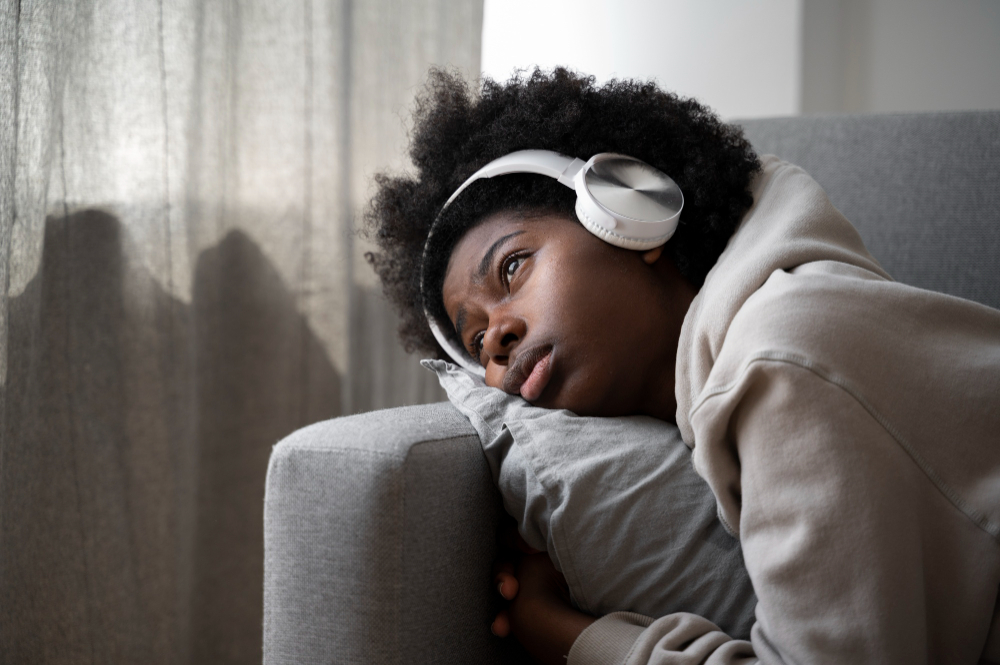Adolescence is a tumultuous journey marked by self-discovery, peer pressure, and academic challenges. For some adolescents, this period of life comes with even more challenges when struggling with depression.

Understanding teens’ unique needs, adolescent outpatient depression treatment centers have emerged as places of hope for both parents and teens, offering specialized care and support to families.
Adolescent Depression
In 2021, an estimated 3.7 million adolescents suffered from a depressive episode in the U.S., with ages ranging from 12-17. Depression among adolescents can be triggered by various factors, including biological, environmental, and psychological influences. It often manifests as persistent feelings of sadness, hopelessness, and a loss of interest in activities once enjoyed. Recognizing the signs early on is crucial, as untreated depression can have long-term consequences, affecting academic performance, relationships, and overall well-being. If you notice changes in the behavior of your child, it is best to address them delicately and as soon as possible to protect your child’s health and happiness.
The Need for Specialized Adolescent Outpatient Treatment
While depression affects individuals of all ages, adolescents face unique challenges that necessitate a specialized approach to treatment. Adolescent outpatient treatment centers fill this crucial gap by tailoring their programs to meet the distinct needs of young individuals. These centers provide a supportive environment that fosters understanding, empathy, and the development of coping mechanisms specific to the adolescent experience.
A Holistic Approach to Healing
Adolescent outpatient treatment centers for depression often use a holistic approach to healing, recognizing that mental health is interconnected with various aspects of an individual’s life. These centers often offer a combination of therapeutic modalities, including individual counseling, group therapy, and family sessions. By involving the family, treatment becomes a collaborative effort, addressing the broader support system that plays a pivotal role in an adolescent’s life.
Individual Counseling: Nurturing Emotional Resilience
One-on-one counseling sessions at outpatient treatment centers are conducted by certified mental health professionals. These certified therapists work closely with adolescents to explore the roots of their depression, identify triggers, and develop coping strategies in a safe space. The one-on-one sessions can then be personalized to the unique needs of the individual seeking treatment. Through a combination of evidence-based therapies and a safe space for self-expression, adolescents can begin to unravel the complexities of their emotions and gradually build emotional resilience.
Group Therapy: Peer Support and Connection
Adolescents often find solace in the company of peers who share similar struggles. Group therapy sessions within outpatient treatment centers create a sense of community and understanding. In these sessions, adolescents can share their experiences, learn from others, and realize they are not alone in their journey. Group therapy fosters a supportive environment where individuals can exchange insights, encouragement, and coping mechanisms.
Family Sessions: Strengthening Support Networks
The impact of adolescent depression extends beyond the individual to the family unit. Many outpatient treatment centers involve families in the healing process through dedicated family therapy sessions. These sessions aim to improve communication, enhance understanding, and equip families with tools to support their adolescent’s mental health journey. A strong family support network is often instrumental in sustaining the progress made during treatment.
Education and Skill-Building
Adolescent outpatient treatment centers go beyond addressing immediate symptoms; they focus on equipping adolescents with life skills and tools for long-term success. Educational components within these programs help adolescents understand the nature of depression, develop emotional intelligence, and acquire coping strategies that can be applied throughout their lives.
A Beacon of Hope for Brighter Futures
Adolescent outpatient treatment centers play a pivotal role in breaking the chains of depression that can shroud the formative years of young individuals. By offering a combination of individualized counseling, group therapy, and family sessions, these centers provide a well-rounded approach to healing. Through education, skill-building, and the nurturing of emotional resilience, adolescents can emerge from treatment with a strengthened sense of self and the tools needed to navigate the challenges that lie ahead.
These treatment centers are not just places of healing. They are beacons of hope that provide opportunity for adolescent to seek a brighter future. By addressing the unique needs of each teen and fostering a supportive environment, these centers empower adolescents to overcome the challenges of depression and embark on a path of self-discovery and resilience.
